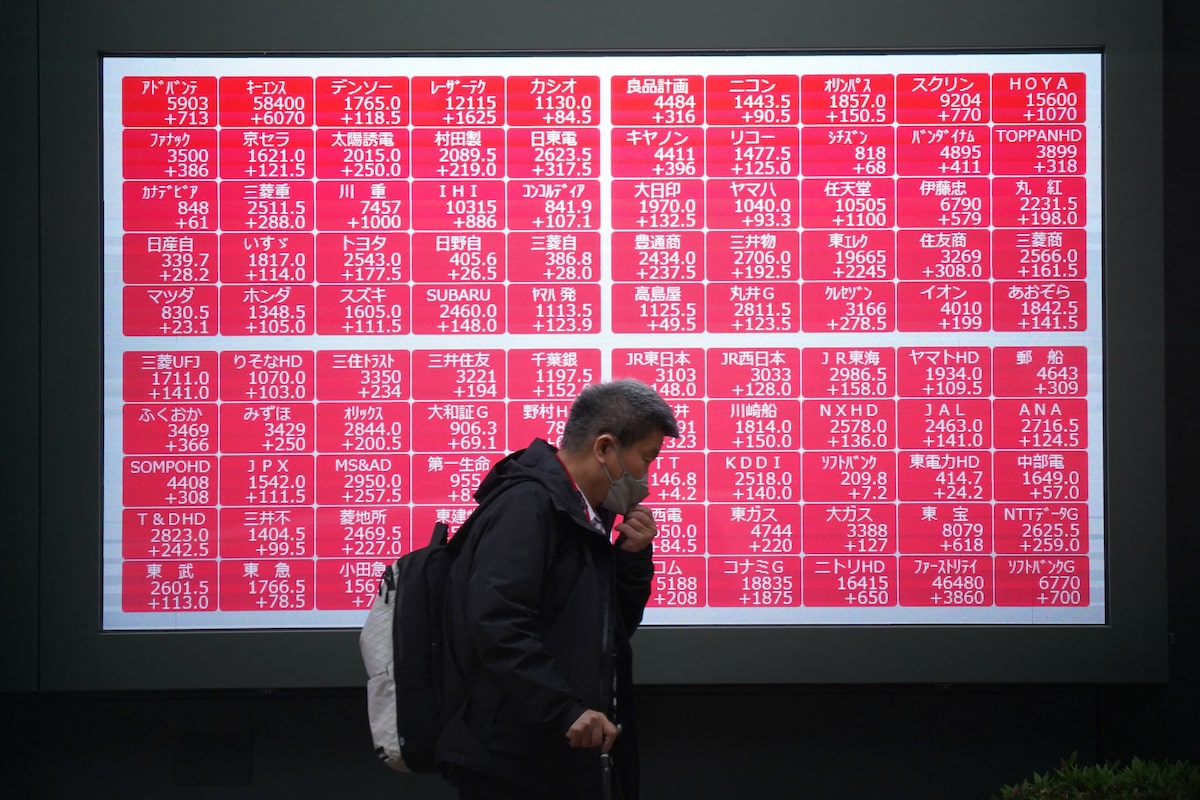Asian shares mark moderate gains in the face of anxiety over Trump’s trade war

Asian shares mostly rose Thursday, despite the continued fretting over President Donald Trump’s trade war, with all eyes on negotiations that just began between the administration and Japan.
Japan’s benchmark Nikkei 225 gained 0.7 per cent to 34,142.86 in morning trading.
Honda stock price jumped 1.7 per cent after the Japanese automaker said it plans to move its production of the five-door Civic hybrid electric vehicles for the U.S. market from Japan to the company’s plant in Indiana.
Honda Motor Co. didn’t say the move was in response to Trump’s tariff policies but stressed it moves production to where there is demand. Production of the U.S.-bound five-door Civic HEV began at the Yorii plant outside Tokyo in February. So far 3,000 vehicles have been produced there for the U.S. market.
Trump joined Treasury Secretary Scott Bessent and Commerce Secretary Howard Lutnick in the talks with the Japanese delegation in Washington. “Hopefully something can be worked out which is good (GREAT!) for Japan and the USA!” Trump wrote in a social media post ahead of the meeting.
Australia’s S&P/ASX 200 gained 0.3 per cent to 7,781.00. South Korea’s Kospi edged up 0.5 per cent to 2,459.46. Hong Kong’s Hang Seng added 0.5 per cent to 21,165.70, while the Shanghai Composite slipped 0.2 per cent to 3,270.47.
U.S. stocks fell Wednesday after Nvidia warned new restrictions on exports to China will chisel billions of dollars off its results. The S&P 500 sank 2.2 per cent after falling as much as 3.3 per cent earlier. Such an amount would have vied for one of its worst losses in years before the historic, chaotic swings that have upended Wall Street in recent weeks.
The Dow Jones Industrial Average dropped 699 points, or 1.7 per cent, and the Nasdaq composite sank a market-leading 3.1 per cent.
Many investors are bracing for a possible recession because of Trump’s tariffs, which he has said he hopes will bring manufacturing jobs back to the United States and trim how much more it imports from other countries than it exports. A survey of global fund managers by Bank of America found expectations for recession are at the fourth-highest level in the last 20 years.
The World Trade Organization said Wednesday it expects tariffs to cause a 0.2 per cent decline in the volume of world merchandise trade for 2025. That’s if the tariff situation remains as it was on Monday. Trade could shrink by 1.5 per cent this year if conditions worsen, the WTO said.
All told, the S&P 500 fell 120.93 points to 5,275.70. The Dow Jones Industrial Average dropped 699.57 to 39,669.39, and the Nasdaq composite sank 516.01 to 16,307.16.
Treasury yields eased in the bond market, taking a leg lower following the comments from the Fed’s chair. The yield on the 10-year Treasury fell to 4.28 per cent from 4.35 per cent late Tuesday and from 4.48 per cent at the end of last week.
In energy trading, benchmark U.S. crude rose 35 cents to $62.82 a barrel. Brent crude, the international standard, gained 23 cents to $66.08 a barrel.
In currency trading, the U.S. dollar rose to 142.75 Japanese yen from 141.74 yen. The euro cost $1.1360, down from $1.1401.
